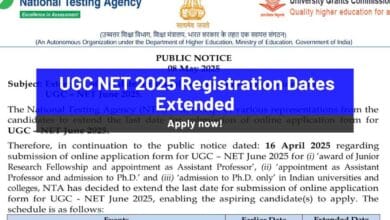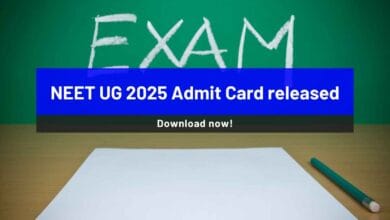CTET 2023 Results are out now; Know how to download your scorecards
CBSE has declared the CTET 2023 Results today, check out the steps and download your scorecards from the link given in this article.

CTET 2023 Results: The results of the Central Teacher Eligibility Test (CTET) 2023 conducted by the Central Board of Secondary Education (CBSE) were declared today, on 25th September 2023. All the candidates, who have appeared in the test can now go to the official website of CTET to check and download their results by using the roll number provided to them in their Admit Card of CTET 2023 (August).
Table of Contents
Answer Keys of CTET 2023
The provisional answer keys of CTET 2023 (August) were released on the 15th of September 2023. And thereafter, candidates were allowed to raise objections or challenges against the CTET answer key until the 18th of September 2023.
CTET 2023 Results Summary
| Papers | Registered | Appeared | Qualified |
|---|---|---|---|
| Paper I | 15,01,474 | 12,13,704 | 2,98,758 |
| Paper II | 14,02,022 | 11,66,178 | 1,01,057 |
| Total | 29,03,496 | 23,79,882 | 3,99,815 |
CTET 2023 Cut-off Marks
| Category | Cutoff Marks | Cutoff Percentage |
|---|---|---|
| General | 90 | 60% |
| OBC/ SC/ ST | 82 | 55% |
How to check the CTET 2023 Results?
All the candidates who have appeared in CTET 2023 (August) have to follow the steps mentioned below to check their results and download their scorecards:
- First of all, visit the link given below to check CTET 2023 Results
- Then enter the roll number as given in the Admit Card
- Click on the “submit” button
- The CTET result will appear on the screen
- View and download the result as a PDF file for future reference
Important Dates
| Event | Dates |
|---|---|
| Starting of Online applications | 27th April 2023 |
| Last date to Apply and Make Payment | 25th May 2023 |
| Date of Exam (CTET 2023) | 20th August 2023 |
| Declaration of Results | 25th September 2023 |
Important Links
| Official Website | Click here |
| Link to check CTET 2023 Results | Click here |
| CTET Previous Year Question Papers | Click here |
For more Education news, click here.






